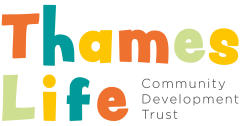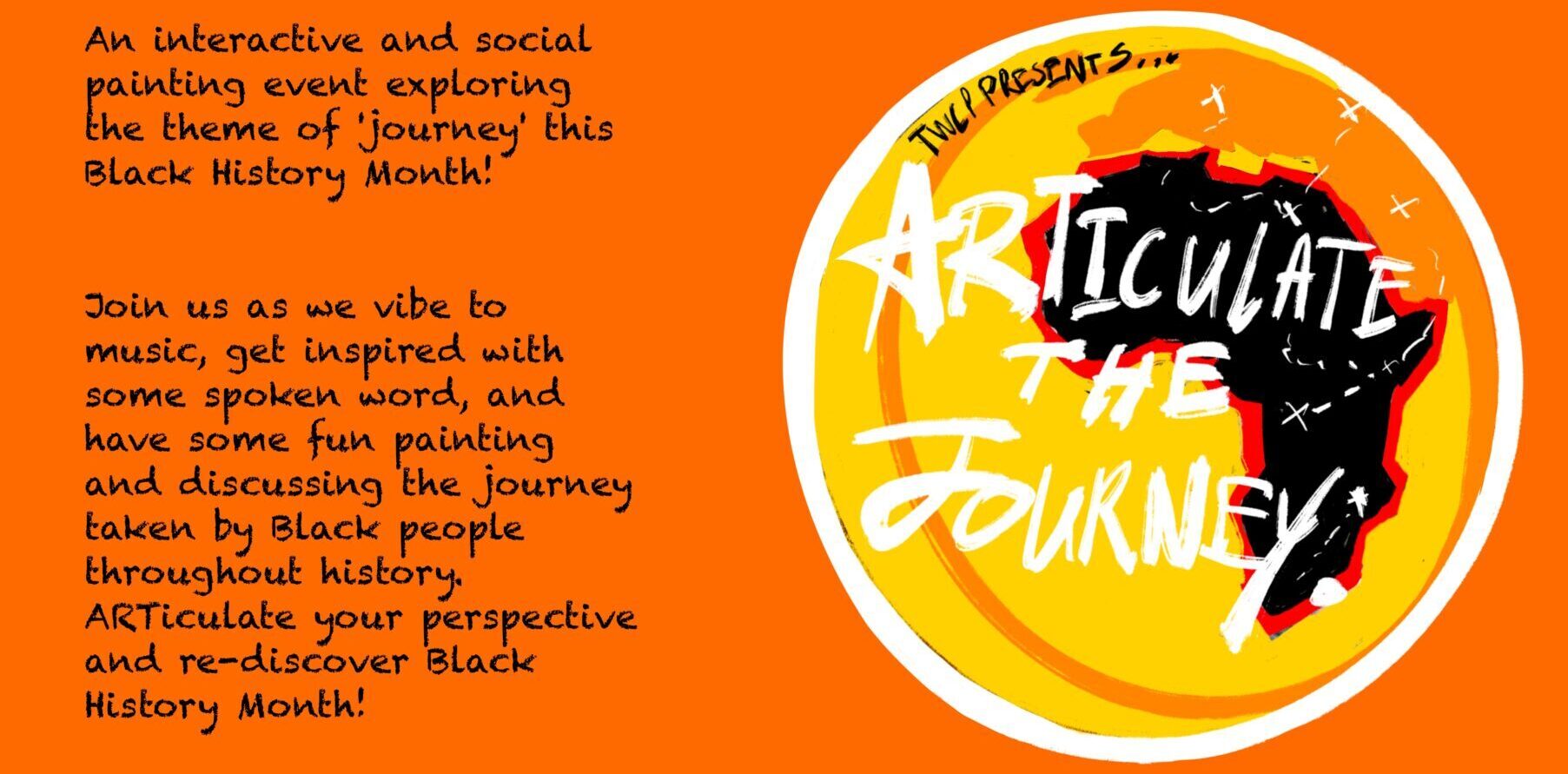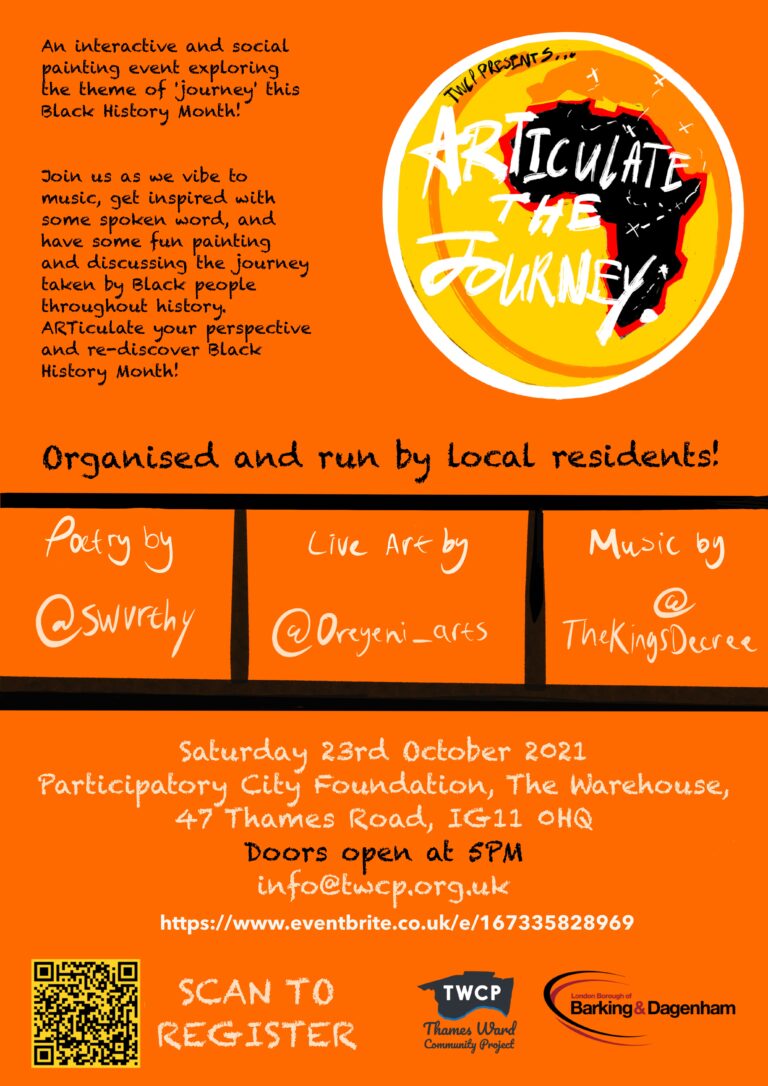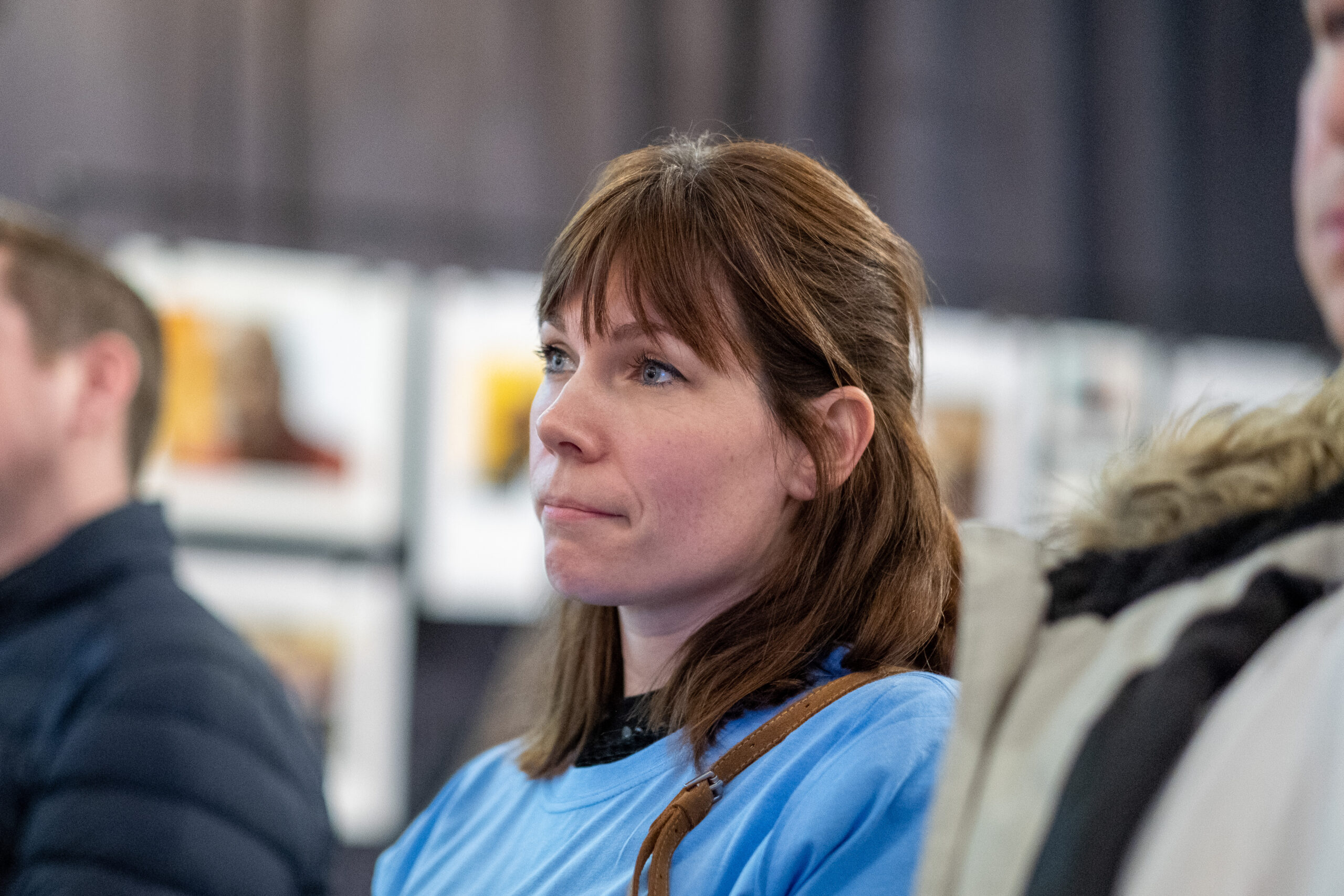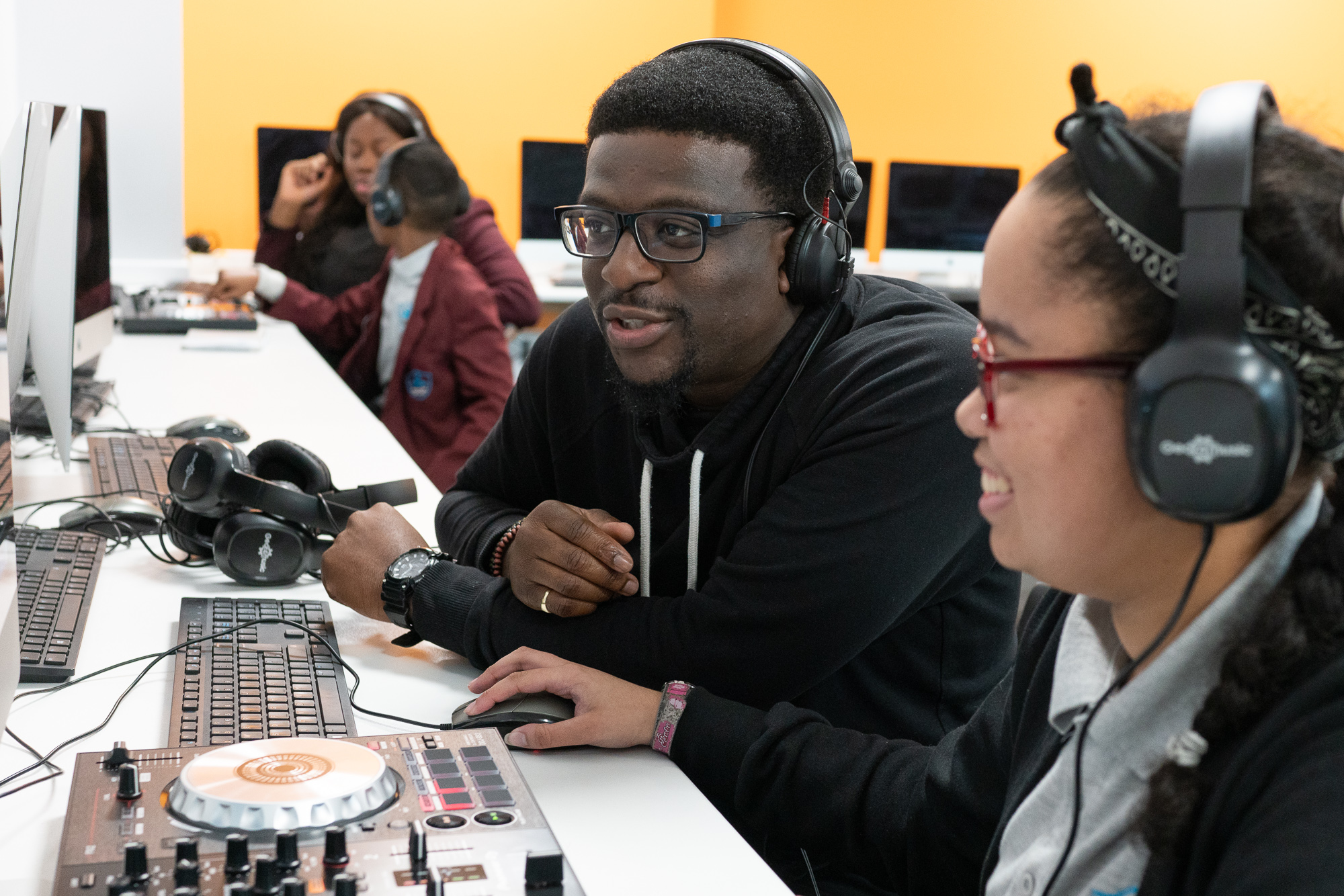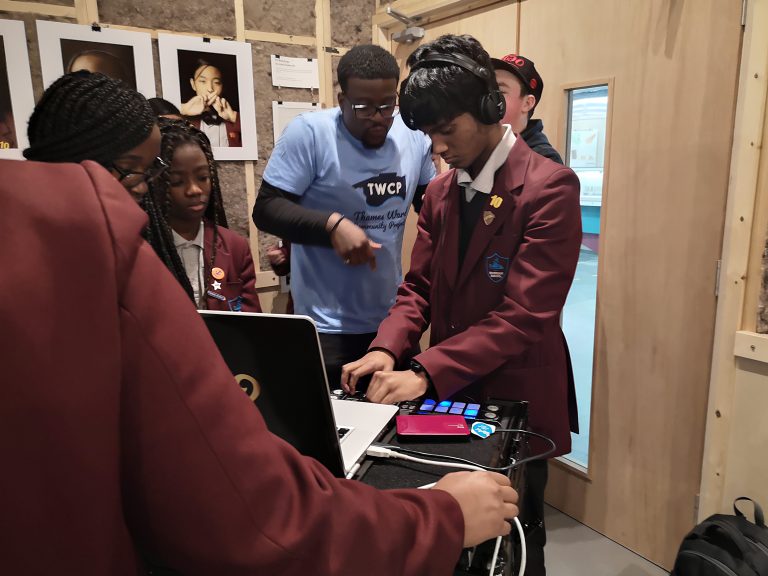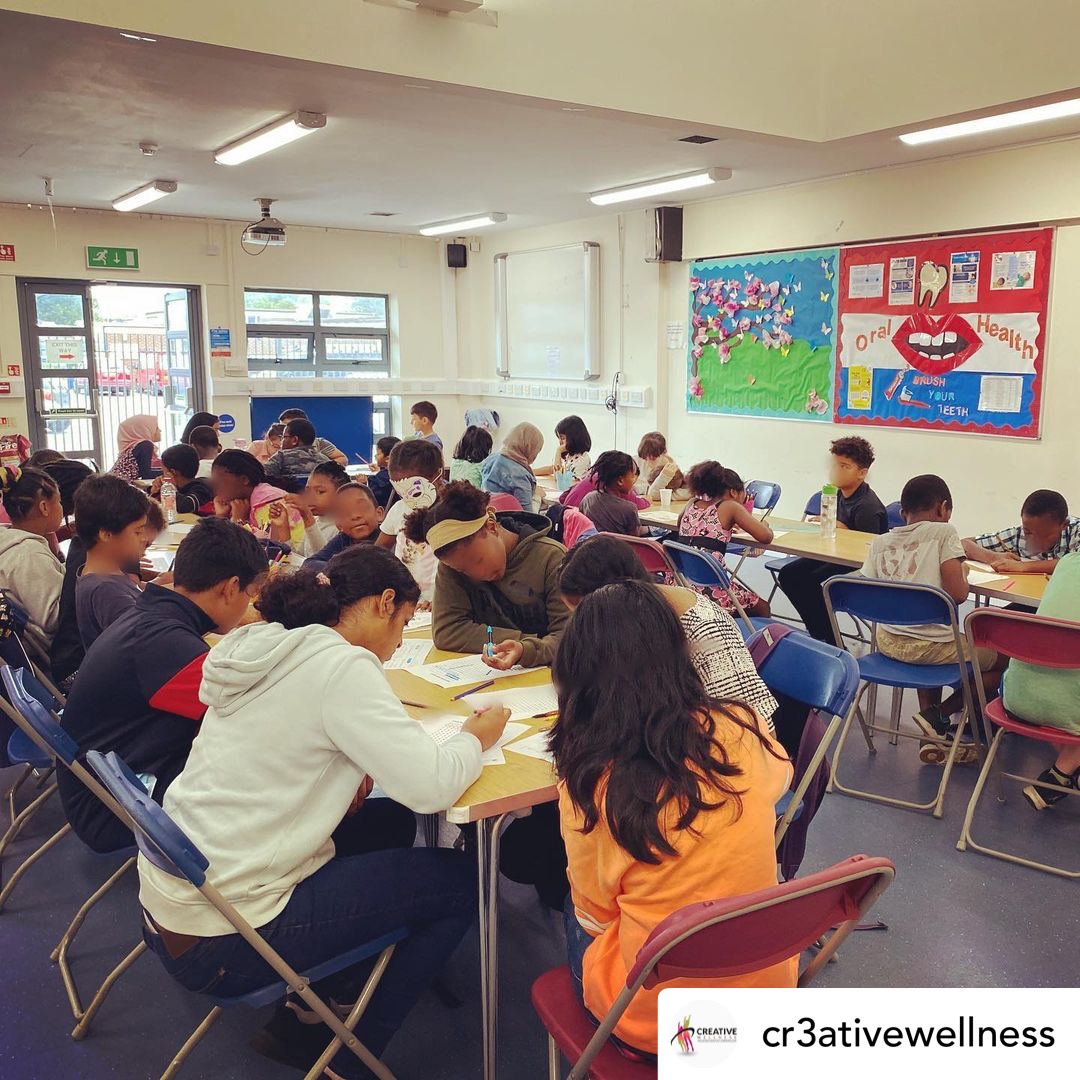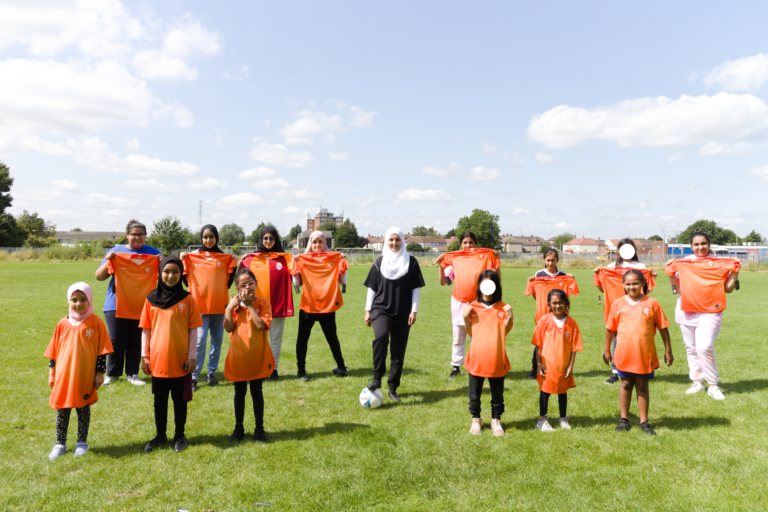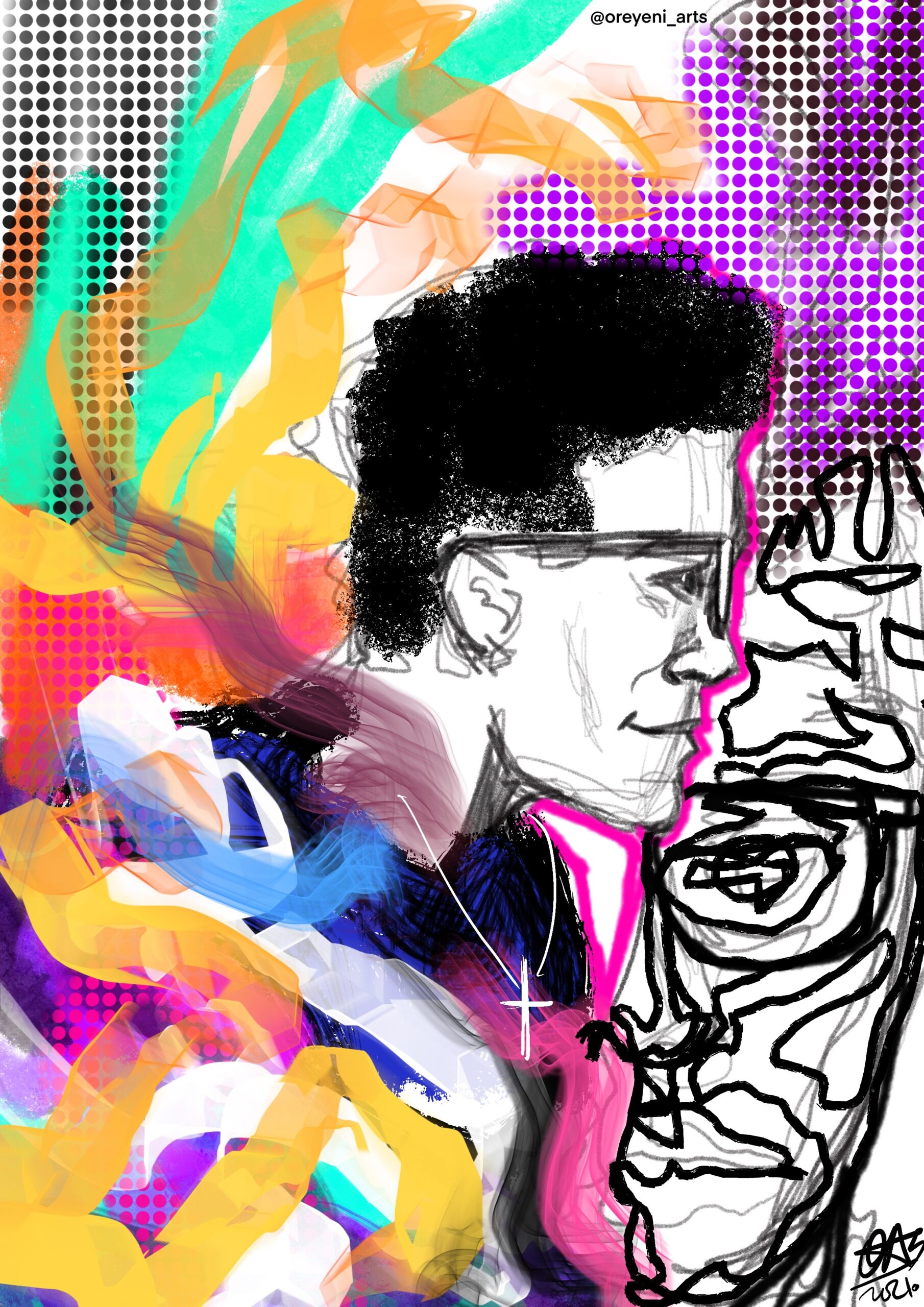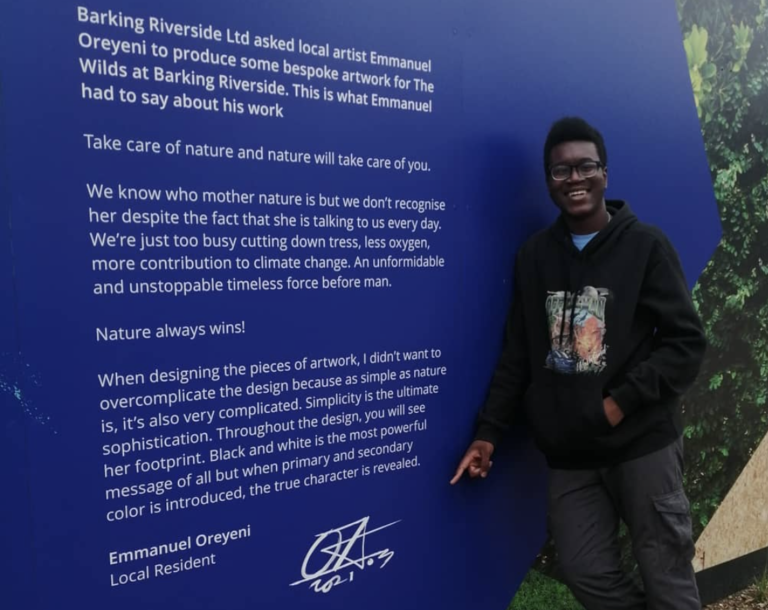I don’t know about you, but I have never lived anywhere quite like this. As someone with young kids, living on a building site surrounded by big construction vehicles could be living the dream, though I think the novelty even for them has worn off already. As a resident in Thames Ward and more recently in Riverside itself, walking past the different building works most days, the pace of change can be overwhelming. Like so many of us, I want to be part of seeing this community thriving.
Trying to picture the future so that I can feel a part of it, feels hard a lot of the time. So when I heard about TWCP, I was really excited about its vision to bring people together to be part of the change and shape a positive future for us all and not just wait for it to be ‘done to’ us. There are too many examples of where large-scale development has led to gentrification and segregation of communities. The diversity we have is one of the main things that attracted me to live here and raise my kids in a community full of different cultures and experiences. I want to celebrate that and not lose it, TWCP does too.
Time has done some funny things the past 18 months, so when I was asked to write this post, including how I got involved in TWCP, I had to squint my eyes to look back and remember pre-covid times. I’d been living in Thames View just under a year before we entered the first lockdown and I’d got involved in TWCP almost immediately. With my family we had been trying to move here for most of a year before we finally arrived. We moved because my husband and I were appointed by the Church of England to form a new church community as the Riverside area expands.
I was introduced to Matt and Jamie and enjoyed a coffee with them at Riverside Coffee Lounge in autumn 2018. Hearing about what they were hoping to achieve in the development of TWCP was really exciting. So much of what they were talking about, was exactly what I was passionate about and how I wanted to start our new church community. From that conversation, I knew that I would be getting more involved, though I didn’t know everything that was to come.
Once living here, I got stuck in with the Steering Group, getting to know others on the board and loved hearing everyone’s stories and reasons for being a part of it. The thing I enjoyed most, was how the steering group was a real mix of people from right across the Ward and all walks of life, but with a shared passion for our community and being a part of positive change here.
A few months ago I was asked if I would consider becoming Co-Chair alongside Josiah, as we’d be losing the wonderful Kelly when she moved out of the area. It has been humbling to take this on because we are at a really key moment in the development of TWCP, where the resident leadership is becoming more fully realised and our impact is growing rapidly. Acting as co-chair is a first for me and I’m grateful to be sharing this with Josiah because we complement each other well, and Matt, Jamie and the staff are a fabulous support to help us work towards a really exciting future.
For many of us (myself included) the last few months have been trying to emerge from this strange and strained online life, often juggling kids at home a lot more (homeschooling = stressful!!). The TWCP team have done a phenomenal job and are emerging out of our lockdowns, with more funding to allow us to grow, an expanded staff team to explore and develop new directions and see resident led change become a reality.
I’m excited to see how the future unfolds, because through the development of TWCP we have the possibility to be a strong and resilient community, that is able to harness and release the amazing talent we have in this ward for the good of those who are here now and the generations to come. With the centenary of the Becontree Estate, it’s got me thinking what will Thames be like in 100 years. My hope is that it is full of life, where people of all backgrounds share food and friendship, where housing is secure and safe, where employment is fulfilling and rewarding and our young people grow to be brave and kind leaders not only here but in communities far and wide.
Anna Pollard
Co-chair and resident trustee of TWCP
